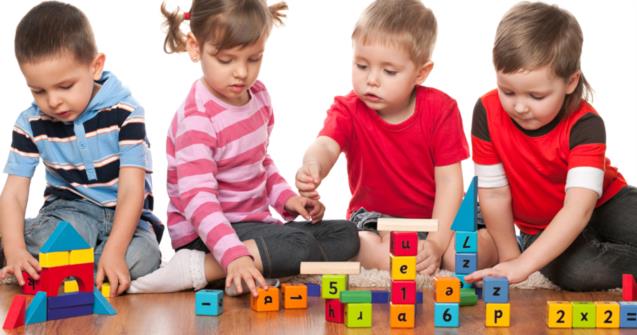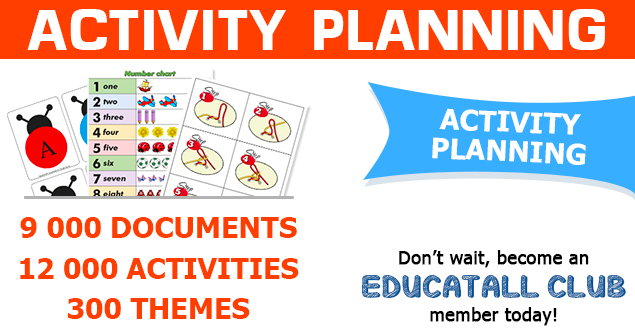
Enjoying group activities with an autistic child
As the mother of an autistic girl, I quickly asked myself if my daughter would ever be able to participate in group activities. I am pleased to say that Melina, my daughter who is now 12 years old, can enjoy activities and games in a group setting. However, this has not always been the case. I was forced to learn to respect her rhythm in terms of socio-emotional development.
At a very young age, Melina showed very little interest in playing with others. She preferred parallel play with her sister or simple games where they would tickle each other or play hide-and-seek with my help.
Help at home
When Melina was 4 years old, a caregiver would come to our home to play with her a few times a week. She used an intense behavioural intervention technique. I must say that Melina did not respond well to this method. It was much too rigid for her. However, I know some children respond very well to this technique.
In a daycare setting
Melina also began attending daycare when she was 4 years old. I would accompany her part time. I must admit I had great faith in the early childhood educator and I am, to this day, very fond of her. At daycare, Melina expressed very little interest in the other children who were present. Nonetheless, we had fun in this environment. There were however days when she did not want to go and other days when we simply left earlier.
Caregiver's presence at daycare
After discussing the situation with Melina's at-home caregiver, she suggested intervening in her daycare environment to help Melina learn to play with others. I had planned to use a familiar song, Old MacDonald had a farm, with pictures of the corresponding animals for a group activity. When we arrived at daycare, the early childhood educator and I sat in a circle with the group of children. Melina joined us. I distributed the pictures and sang the song several times. Every time, I replaced the name "Old MacDonald" with a child's name. Children took turns showing the group their animal picture.
Throughout the activity, Melina repeatedly stood up. Every time, the caregiver immediately sat her back down. After the third or fourth time, Melina started crying and screaming. I expressed my disagreement and her caregiver explained to me that Melina had to learn to remain seated like the others... Picture me, an overtired and overtaxed mother at whit's end. I returned home with Melina who was even more anxious about playing with others.
Looking back now...
Now that I think about it, Melina simply was not ready to play with others at that stage. I was asking too much of her: to remain seated, to wait for her turn, to be surrounded by many children. What's more, the activity involved a song that required her to focus. Autistic children have difficulty concentrating on more than one thing at a time. Thinking that a four-year-old must absolutely be able to take part in group activities is a mistake. Sometimes, their socio-development level makes their participation impossible. They have other things to learn before they can fully enjoy group life.
Solutions
Here are a few solutions that I discovered with Melina.
One step at a time
I remembered my main value: respecting a child's rhythm. I also reminded myself that playtime is supposed to be magical and that a child cannot learn if he is not having fun.
Learning to play alone, with another child, and within a group
Before playing ball as a group, a baby must first learn to manipulate a ball independently. A toddler will learn to play ball with another child, rolling it to him for example. Finally, a three or four-year-old will be able to learn to play within a group of children.
With autistic children, the process is the same. However, the learning process can sometimes require more time.
Remember the following:
If an autistic child seems to have difficulty playing within a large group, provide him with the opportunity to play with another child, then as part of a small group. Once he is comfortable, you can let him try to play within a large group.
Reaching this final step can take time.
Avoid activities involving too many rules and stimuli
An autistic child who must focus on a game, music, and the movement of other children will have difficulty following along. There are just too many stimuli. Introduce simple group activities.
I can say that Melina, who is now 12 years old, only began to enjoy board games this year. Now and then, when a game is too difficult, she can still react badly. She is still learning...but at least she is having fun!
Chantal Millette
Early childhood educator

 Home
Home Theme activities
Theme activities
 Babies and toddlers
Babies and toddlers
 Arts and crafts
Arts and crafts
 Science
Science
 Creative recipes
Creative recipes
 Tips and tricks
Tips and tricks
 Special needs
Special needs
 Extra activities
Extra activities
 Educ-TV
Educ-TV
 Newsletter
Newsletter  Online store
Online store Educatall club
Educatall club

